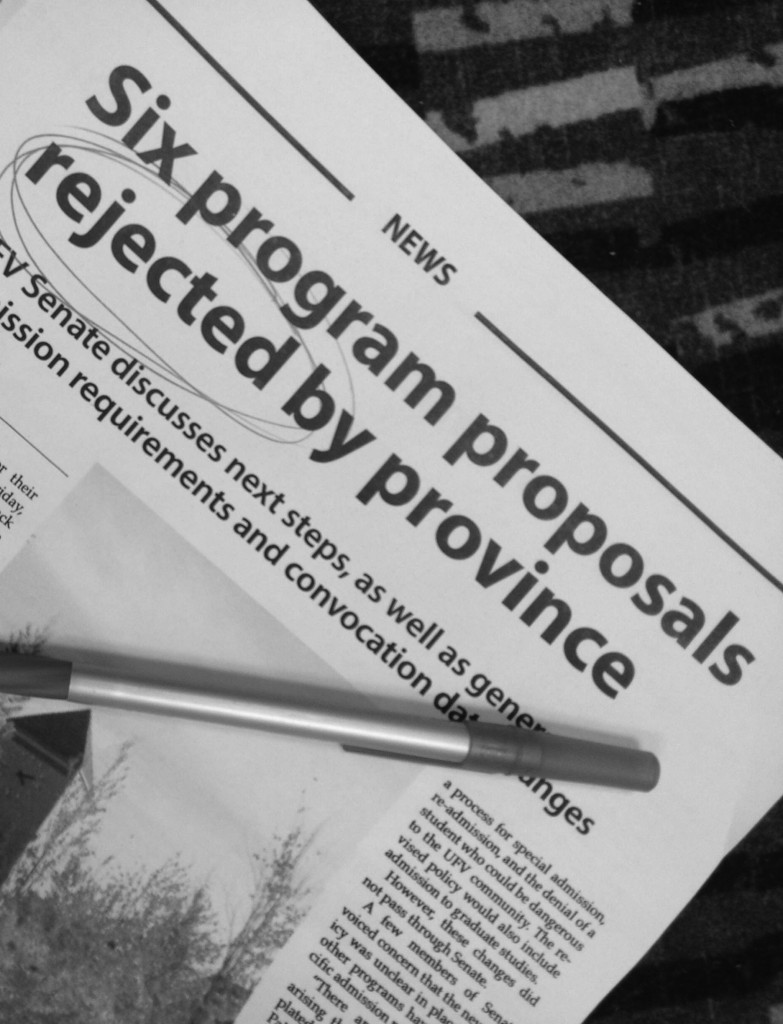By Kodie Cherrille (The Cascade) – Email

As journalists, it is of utmost importance to choose our words carefully, and to be mindful of separating report from commentary, fact from emotion.
In the last issue of The Cascade, we covered the October 16 Senate meeting, where it was reported that six UFV program proposals (bachelors of media arts and education; majors and minors for indigenous studies and peace and conflict; majors for theatre and agriculture), that had been waiting for approval by BC’s Ministry of Advanced Education for a year, had not been approved, and were instead sent to the Degree Quality Assessment Board (DQAB) for review.
In 2013, UFV was given exempt status, which means the university had met the ministry’s criteria of providing high-quality degree programs, along with a regularized and rigourous review process for them. Proposals from institutions with exempt status bypass the regular DQAB review that non-exempt institutions are put through, saving roughly $8,000 per proposal, and a process that can take six months. But when the minister has concerns about the proposals, they get sent back to the DQAB for review.
We ran the news piece with the headline, “Six program proposals rejected by province.” The word “rejected” carries a connotation of flat-out refusal, which was not in line with what actually happened. This sensationalized our portrayal of the events.
Last week’s editorial was also focused on the “rejection.” In that piece, I wrote about the possible frustration students might have, hearing the degrees they might be working toward are being delayed.
The Cascade aims to serve UFV’s student body, and we act on that aim when we provide unbiased news coverage that clearly conveys the facts. We report what we report because we feel it is in the best interest of the students — not because we want to stir the pot.
We did not achieve that aim in our word choice and the extrapolation that followed. We sacrificed accuracy for impact, when it should be the other way around. Impact is meaningless without accuracy.
What we did achieve was undue confusion and frustration among UFV administration, Senate, faculty, and most importantly, our student readership, and for that, I apologize. A newspaper compromises the trust and respect of its readers when it inaccurately portrays the truth.
I am also deeply sorry to everyone who has faith in The Cascade as a source of reliable journalism. A fundamental tenet of journalism is to keep accountable the institutions that serve us. But, while doing so, we must keep ourselves accountable, as well. Our reporting must be measured. As this newspaper’s editor, I have not exercised due diligence to the matter at hand, and subsequently allowed our service to lapse.
We will continue to report on matters that are relevant to UFV students, and we will show restraint when the situation calls for it. Let us move forward, wary of what our words can do.


